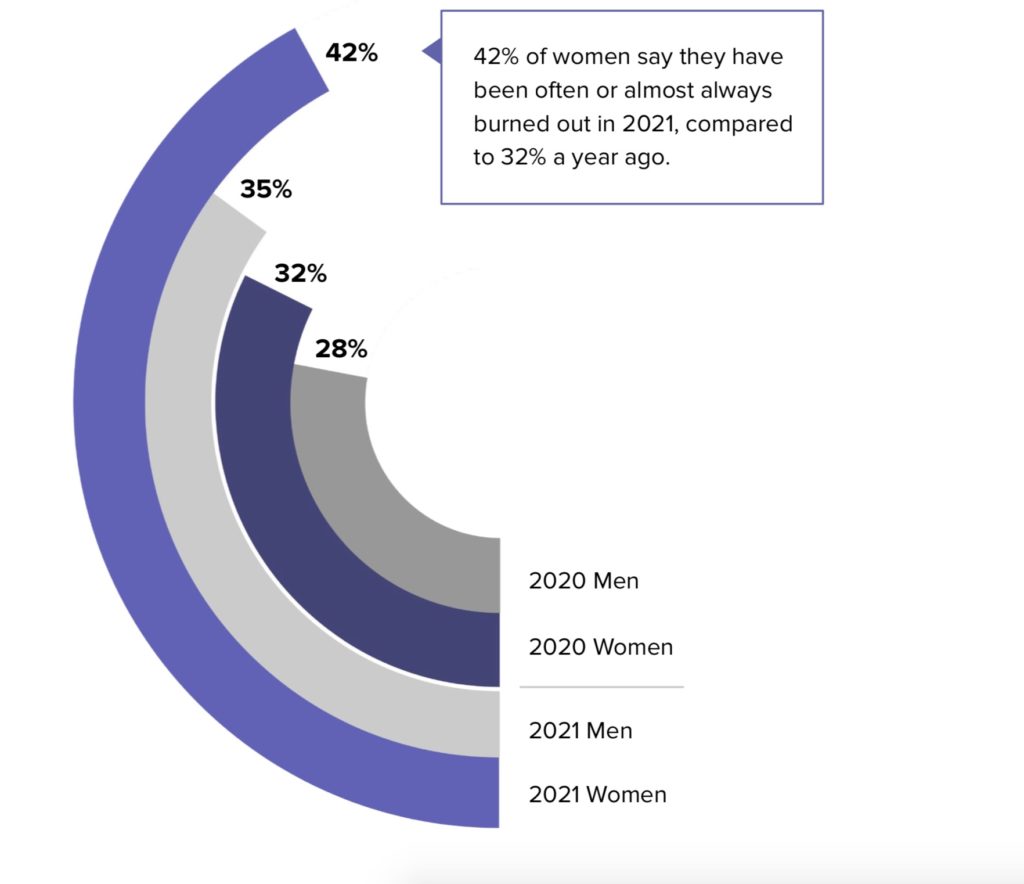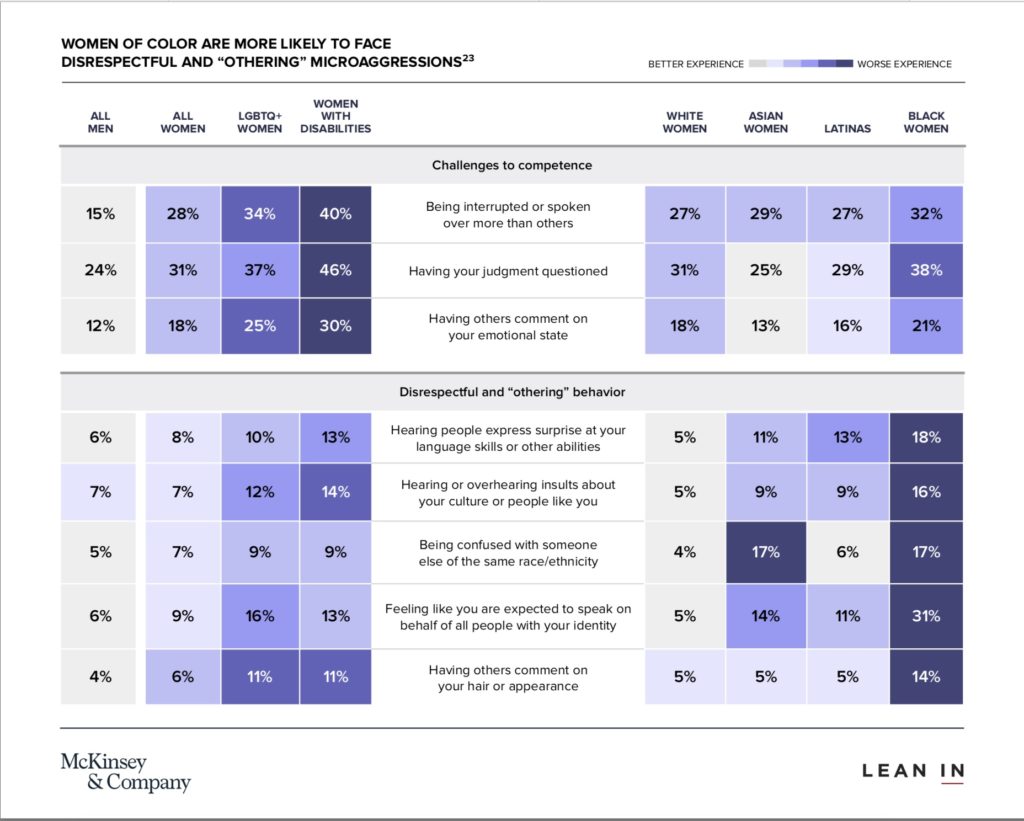Despite important gains since 2016, women remain significantly underrepresented at all levels of management in corporate America, and their work is going unrecognised and unrewarded, reveals a new study released today.
The seventh annual Women in the Workplace report, carried out by LeanIn.Org and McKinsey & Company revealed three key trends. Firstly, women are burned out and at risk of leaving the workforce. Second, their work often goes unrecognised despite the fact they are stepping up as stronger leaders. And third, corporate America is still failing women of colour despite two years of increased focus on racial equity. In short, these dynamics negatively impact women and put companies at risk of losing valuable talent, noted the report.
STRONGER LEADERSHIP
According to the findings, women in leadership are rising as stronger people leaders and more active champions of diversity, equity and inclusion (DE&I); and taking on the extra work that comes with it. Yet they remain significantly underrepresented at all management levels in corporate America. Compared to men at the same level, women in senior leadership are 60% more likely to provide emotional support to employees; and 24% more likely to ensure their teams’ workloads are manageable.
Senior women leaders are also twice as likely to spend a substantial amount of time doing DE&I work outside of their formal job responsibilities; from recruiting candidates belonging to underrepresented communities to leading employee resource groups. And at every level, women are more likely than men to show up as allies to women of colour.
UNRECOGNISED & UNREWARDED EFFORTS
Companies have benefited significantly from women’s leadership during this year of unprecedented workplace changes. However, this critical work is largely going unrecognised and unrewarded. Despite companies signalling a high commitment from women to DE&I and employee wellbeing, this critical work is going overlooked.
Only 25% say that their formal performance review process recognises this type of work to a substantial degree. This has serious implications. Companies risk losing the very leaders they need right now. “Women are contributing more yet are often less recognised. Burnout is at an all-time high. While women have been resilient, it is a moment of reflection,” stated Lareina Yee, a Senior Partner at McKinsey & Company. “Companies cannot afford to miss the signals of talent attrition. It’s time to invest in the leaders who have kept companies afloat throughout the challenges of the past two years.”

Source:Women in the Workplace, byLeanIn.Org and McKinsey & Company
SERIOUS BURNOUT
While all employees are more burned out than last year, women have been hit particularly hard. Around 42% of women report being burnt out; compared to 35% of men. And 24/7 cultures are driving this exhaustion. More than one in three employees feel as if they are expected to be “on” at all times; and those who feel this way are more than twice as likely to be burned out.
“This year’s report should serve as a wake-up call. Despite bold commitments to racial equity, the experiences of women of colour aren’t getting better,” confirmed Rachel Thomas, Co-founder and CEO of LeanIn.Org. “This points to the critical need to engage employees as change agents and allies, so we can truly transform the culture of work.”
MICRO-AGGRESSIONS CONTINUE
Despite a greater awareness of DE&I issues and increased focus and investment on racial equity in corporate America, women of colour continue to experience similar types of micro-aggressions at similar frequencies as they did two years ago. The chart below summarises the types and extent of micro-aggressions women of colour experience; from having their competence challenged to disrespectful behaviour. These experiences can take a heavy toll. Compared to women of colour who don’t experience micro-aggressions, women of colour who do are more than twice as likely to feel negatively about their job; twice as likely to be burned out; and three times as likely to say they’ve struggled to concentrate at work due to stress.

Additionally, while more White employees see themselves as allies to women of colour this year, they are no more likely to take action. Although 77% of White employees say they’re allies to women of colour, only 39% confront discrimination when they see it; and only 21% regularly advocate for new opportunities for women of colour. This points to the critical need for businesses to equip employees at all levels to challenge bias; and show up as substantive allies.
CREATING AN INCLUSIVE CULTURE
In addition to steps companies can take to recognise women’s leadership, create a more inclusive culture, and reduce burnout, the 2021 Women in the Workplace report includes best practices for eliminating bias in hiring and promotions; a detailed look at what HR leaders and employees see as the benefits and risks of remote work; and data-driven vignettes on the distinct experiences of Asian women, Black women, Latinas, lesbian and bisexual women, and women with disabilities.
The report is based on data and insights from 423 companies representing more than 12 million people, along with survey responses from over 65,000 individual employees. Click here to access the full report findings.
A UK study also found that inequalities at work are holding back women of colour from progressing into leadership roles. Click here to read more.








































